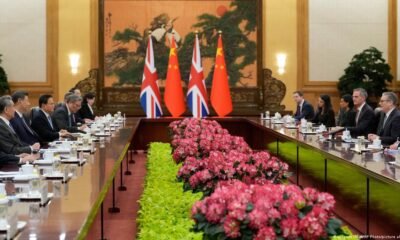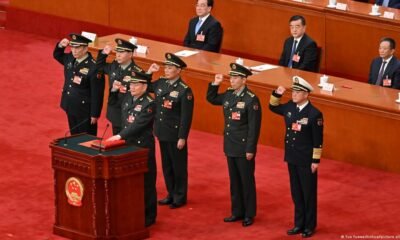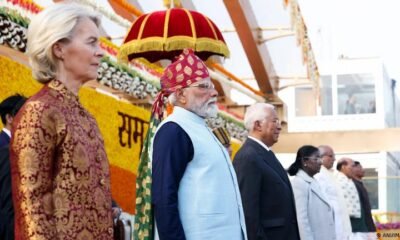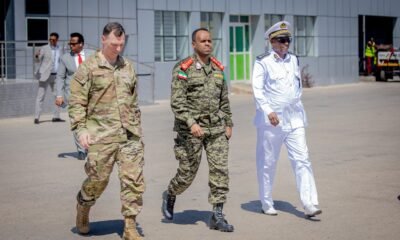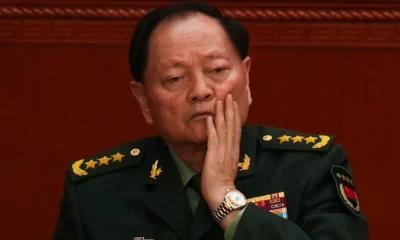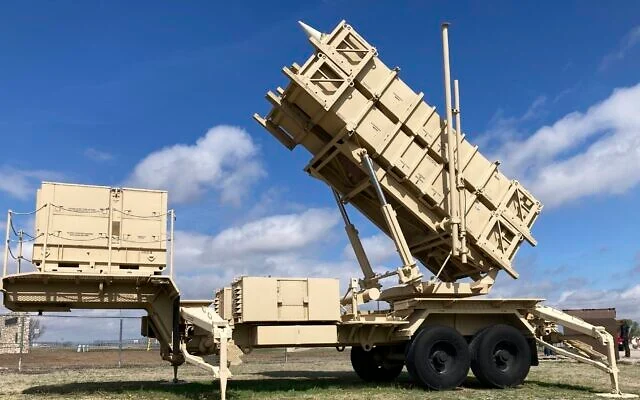Top stories
EU Plans Cuts to Embassy Staff Amid Budget Constraints

The European Commission is planning significant reductions in staffing across its global network of embassies, focusing its resources on countries deemed strategically critical. This move, prompted by a budget shortfall in the EU’s diplomatic arm, the European External Action Service (EEAS), has raised concerns about diminished EU influence in regions like Africa and Latin America.
Under the proposed reforms, the EU’s 145 delegations worldwide would shift toward a more targeted approach. Greater resources would be allocated to nations aspiring to join the EU, the bloc’s immediate neighborhood, G20 countries, emerging political and economic powers, and areas of instability directly impacting EU interests.
This realignment aligns with the EU’s Global Gateway initiative, its response to China’s expansive trade and infrastructure projects. However, critics warn that prioritizing such economic strategies risks neglecting broader diplomatic and humanitarian responsibilities.
One major consequence of the cuts would be a reduced presence in over 30 African countries and key Latin American nations, including Brazil. While no embassies would close outright, many delegations would operate with minimal staff or consolidate into regional hubs.
This retrenchment contradicts the EU’s previously declared “pivot to Africa,” symbolized by Commission President Ursula von der Leyen’s first official visit to Addis Ababa in 2019. Some officials fear the downsizing could weaken relationships with critical regions and open opportunities for rivals like Russia and China to gain influence.
The cuts would impact nearly 800 local officers, many of whom could face layoffs. Proposals to consolidate foreign delegations, such as merging EEAS missions with those of the European Investment Bank or European Civil Protection, could create logistical and political complications.
Concerns also extend to smaller EU member states, which often depend on EU delegations for diplomatic access and intelligence due to limited national embassy networks.
Kaja Kallas, the incoming EU foreign policy chief, is expected to address the recommendations during discussions with the College of Commissioners in December. Some officials within the EEAS have pushed back against the plan, labeling it premature and risky.
The proposals reflect the EU’s struggle to balance its diplomatic ambitions with financial realities, particularly in the context of ongoing challenges such as the war in Ukraine, evolving U.S. foreign policy under a potential Trump presidency, and accusations of double standards in the bloc’s global approach.
Critics argue that the EU risks undermining its global credibility and influence by reducing its on-the-ground presence in key regions. As one EU official noted, “Leaving just a head of delegation and a chauffeur sends the wrong message.”
The final decision will hinge on balancing budgetary constraints with the EU’s long-term strategic goals, a test for the new Commission and its commitment to maintaining the bloc’s global footprint.
Top stories
Crime, Congress and Control: Costa Rica’s Election Moment
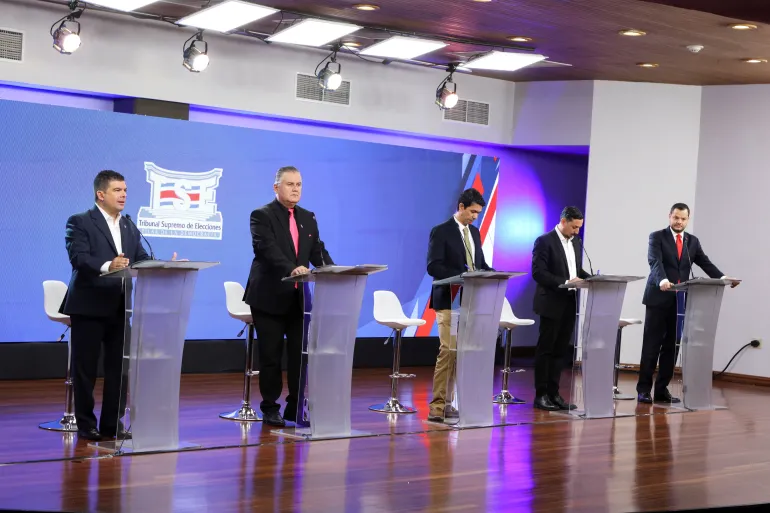
Security Fatigue Meets Democratic Limits.
Costa Rica’s general election is unfolding against a backdrop that would have been almost unthinkable a decade ago. Once celebrated as one of Latin America’s safest democracies, the country now finds itself grappling with drug-fueled violence, institutional gridlock and a growing appetite for strong-handed governance. Sunday’s vote is less a routine transfer of power than a referendum on whether populist politics can be converted into long-term control.
At the center of the race is Laura Fernandez, the chosen successor of President Rodrigo Chaves. Leading the polls with just over 40 percent, she is positioned to win outright and avoid a runoff. Her campaign has leaned heavily on continuity: extending Chaves’ confrontational style, his tough-on-crime rhetoric and his narrative that an entrenched political class has obstructed necessary reforms.
That message is resonating with a public weary of insecurity. Homicides reached record levels during Chaves’ term, driven largely by transnational drug trafficking routes that have turned coastal regions into battlegrounds. Yet the president remains popular, with approval ratings hovering near 60 percent. For many voters, the surge in violence is not evidence of failure but of a problem finally being named and confronted.
Fernandez’s ambition goes further than winning the presidency. She has asked voters to hand her party 40 of the 57 seats in Congress, a supermajority that would allow constitutional reforms and break the legislative paralysis that has defined Chaves’ tenure. The current government controls only eight seats and has repeatedly blamed Congress for blocking its agenda. The election therefore doubles as a struggle over institutional balance.
Her main challengers represent a fragmented opposition. Alvaro Ramos, a centrist economist from the country’s oldest party, and Claudia Dobles, a progressive figure and former first lady, trail far behind in the polls. While both are seen as plausible runoff contenders if Fernandez dips below the threshold, neither has yet captured the public mood in a way that rivals the populist appeal of continuity.
Undecided voters may determine whether Fernandez clears the bar. Roughly a quarter of the electorate remains uncommitted, disproportionately young and concentrated in coastal provinces most affected by violence. Their frustration cuts across ideology. Many express skepticism toward all political actors, including the current government, even as they acknowledge the need for stronger security policies.
Costa Rica’s constitutional framework places limits on populist consolidation. Consecutive reelection is banned, forcing Chaves to step aside even as he remains influential. Fernandez has promised to keep him close, effectively offering voters a way to extend his mandate without violating the letter of the law. Whether that satisfies concerns about accountability and concentration of power is one of the election’s central questions.
The vote also tests the resilience of Costa Rica’s democratic culture. Calls for constitutional reform and a stronger executive resonate in times of crisis, but they challenge a system built on checks, compromise and institutional restraint. Granting a supermajority would mark a significant shift away from the fragmented legislatures that have long defined Costa Rican politics.
As polls close, the country stands at a crossroads. A first-round victory would hand the populist right a clear mandate and the opportunity to reshape governance. A runoff would suggest limits to that appeal and prolong uncertainty. Either way, the election reflects a deeper transformation: a society once confident in its stability now searching for order, and willing to test how far its democracy can bend to achieve it.
Top stories
U.S. Clears Potential $9 Billion Patriot Missile Sale to Saudi Arabia
Top stories
UN Faces Cash Crisis as Guterres Warns of “Imminent Financial Collapse”

The UN was built to prevent global collapse. Now it is warning it may collapse financially itself.
The United Nations is facing what its own leader now describes as an existential financial emergency, with Secretary-General António Guterres warning member states that the organization is at risk of “imminent financial collapse” unless governments either pay what they owe or overhaul how the UN is funded.
In a blunt letter sent to ambassadors on January 28 and seen by Reuters, Guterres said the UN’s long-running liquidity crisis has reached a breaking point. Unpaid mandatory contributions, combined with rigid budget rules that force the organization to return unspent funds, are pushing the UN toward a cash shortfall that could halt operations as early as July.
“The crisis is deepening, threatening program delivery and risking financial collapse,” Guterres wrote. “The situation will deteriorate further in the near future.”
The warning is the starkest yet from a secretary-general who has spent years sounding alarms about the UN’s finances. But this moment is different. It comes as the organization’s largest contributor, the United States, pulls back sharply from multilateral engagement under President Donald Trump, cutting voluntary funding and withholding mandatory payments to the UN’s regular and peacekeeping budgets.
Under UN rules, assessed contributions are calculated based on economic size. The United States accounts for roughly 22% of the core budget, followed by China at about 20%. By the end of 2025, Guterres said, outstanding dues had reached a record $1.57 billion, though he did not publicly name delinquent states.
The structural problem, he argued, is compounded by what he called a “Kafkaesque cycle.” Current UN rules require the organization to credit hundreds of millions of dollars in unspent funds back to member states each year — even when the cash was never actually received.
“In other words,” Guterres wrote, “we are trapped in a cycle expected to give back cash that does not exist.”
The secretary-general has already launched a reform initiative known as UN80, aimed at cutting costs and improving efficiency. Member states agreed last year to reduce the 2026 regular budget by about 7%, bringing it down to $3.45 billion. But Guterres warned that austerity alone will not solve a system-wide funding failure.
“Either all Member States honor their obligations to pay in full and on time,” he wrote, “or Member States must fundamentally overhaul our financial rules.”
The financial squeeze is also increasingly political. Washington announced earlier this month that it will withhold 10% of U.S. funding to the UN and its agencies unless they take what it calls “credible steps” to combat anti-Israel bias. The condition is embedded in a nearly 500-page 2026 funding package and gives the U.S. secretary of state broad discretion to freeze funds if certification requirements are not met.
The move follows long-standing U.S. and Israeli complaints that the UN disproportionately targets Israel. In December, Israeli Ambassador Danny Danon said the UN spends roughly $100 million a year on reports, debates, and mechanisms focused almost exclusively on Israel.
“These are orchestrated campaigns, well-funded and well-established within the UN budget,” Danon said, arguing that such spending undermines the organization’s credibility.
Trump, for his part, has sent mixed signals. He has said the UN has “great potential” but accused it of failing to deliver, while simultaneously launching a new “Board of Peace” initiative that critics fear could sideline the UN’s traditional role in conflict mediation.
Founded in 1945 in the aftermath of World War II, the United Nations now comprises 193 member states and serves as the backbone of global diplomacy, humanitarian coordination, and peacekeeping. Its financial distress, Guterres warned, is no longer an internal management issue but a systemic threat.
The implication is stark: at a moment of multiplying wars, humanitarian disasters, and geopolitical fragmentation, the world’s primary multilateral institution may soon lack the cash to function. Whether member states respond with payments or paralysis will determine not just the UN’s balance sheet, but its relevance in an increasingly fractured global order.
Top stories
Somali American Known for ‘Bananas and Rice’ Arrested in Minneapolis

A phrase meant to explain identity has now collided with a national immigration crackdown.
A Somali American woman who gained sudden national recognition for a vivid metaphor about identity has been arrested in Minneapolis as part of a widening federal crackdown following protests linked to U.S. immigration enforcement, U.S. officials said Wednesday.
Nasra Ahmed, 23, was among 16 people taken into custody in Minnesota on federal charges of assaulting, resisting, or impeding law enforcement officers, according to Attorney General Pam Bondi. The arrests come amid heightened tensions in Minneapolis following a fatal encounter between federal agents and a U.S. citizen during an immigration operation last week.
Ahmed became a viral figure after speaking at a Jan. 21 press conference, where she used food imagery to describe the experience of growing up Somali American.
“It’s kind of like bananas and rice,” she said. “People don’t think you can eat bananas with rice, but that’s what it’s like to be Somali and American.”
The remark spread rapidly across social media, resonating with many immigrants and children of immigrants navigating dual cultural identities.
Federal officials say Ahmed’s arrest is unrelated to her viral remarks and instead stems from alleged actions during recent protests in Minneapolis, which erupted after the Jan. 24 shooting death of Alex Pretti, a 37-year-old U.S. citizen killed by U.S. Border Patrol agents during an immigration enforcement operation.
In a statement posted on X, Bondi said those arrested are accused of obstructing federal officers amid unrest in the city. “Federal agents have arrested 16 Minnesota rioters for allegedly assaulting federal law enforcement people who have been resisting and impeding our federal law enforcement rights,” she wrote, adding that additional arrests are expected.
The U.S. Department of Justice released the names and photographs of all 16 defendants charged under a federal statute that criminalizes interference with officers performing official duties. Alongside Ahmed, those charged include Abdikadir Noor, Christina Rank, Madeline Tschida, Nitzana Flores, Helicity Borowska, Quentin Williams, William Vermie, Paul Johnson, Gillian Etherington, Joshua Doyle, Kirubele Adbebe, Margaret Sager, Ilan Wilson-Soler, Alice Valentine, and Matrim Charlebois.
Authorities have not publicly detailed Ahmed’s specific alleged conduct during the demonstrations, nor have they said whether she is accused of assault or other forms of obstruction. Court proceedings are expected to clarify the charges in the coming days.
The arrests unfold as the Trump administration intensifies immigration enforcement nationwide and faces mounting criticism over the use of force by federal agents. The shooting of Pretti — the second fatal encounter involving federal immigration officers in Minneapolis in recent weeks — has become a flashpoint in a broader national debate over accountability, protest rights, and the scope of federal power.
For Ahmed, the trajectory has been swift and stark: from a symbolic voice articulating immigrant identity to a defendant in a high-profile federal case. As legal proceedings move forward, her arrest has already become part of a larger story about protest, policing, and the increasingly fraught intersection of immigration policy and civil unrest in the United States.
Top stories
Britain Pushes Russian Ship Off Critical Data Cables

This wasn’t a routine patrol. It was a message—Britain’s undersea lifelines are not open for testing.
The Royal Navy forced a Russian cargo vessel to leave British waters this week after it anchored alarmingly close to critical transatlantic data cables, in the latest sign that Europe’s maritime infrastructure is becoming a frontline in rising tensions with Russia.
The ship, Sinegorsk, entered the Bristol Channel late Tuesday and appeared to drop anchor roughly two miles off Minehead, on England’s north coast. Its position placed it less than a mile from multiple undersea telecommunications cables linking Britain to the United States, Canada, Spain, and Portugal—arteries that carry vast volumes of global internet and financial traffic.
British authorities ordered the vessel to leave after the Russian crew claimed they were carrying out “essential safety repairs.” When the ship remained stationary for more than half a day, the response escalated. On Wednesday afternoon, a Royal Navy Wildcat helicopter was launched from Yeovilton. Within minutes of its arrival, Sinegorsk raised anchor and sailed back into international waters.
While the helicopter’s armament status was not disclosed, the signal was unmistakable. Wildcats can be equipped with Sea Venom anti-ship missiles or Sting Ray torpedoes, making their appearance a clear warning rather than a symbolic flypast.
The episode has sharpened concerns in London about Russia’s interest in undersea infrastructure. Marine tracking data showed that Sinegorsk’s last recorded port call was in Arkhangelsk, a hub that also hosts Russia’s Northern Fleet—an association that immediately raised eyebrows among security officials. Although the ship is not currently sanctioned and is not formally linked to Russia’s so-called “shadow fleet,” its behavior fits a broader pattern Western governments say is increasingly familiar.
Within three-quarters of a mile of the ship’s anchorage lay five major cables, including parts of the TGN Atlantic system connecting Britain to New York and the EXA Express cable linking the UK to Nova Scotia, a global telecoms nexus. A Coastguard surveillance aircraft circled the vessel earlier on Wednesday, underscoring official concern well before the naval helicopter arrived.
Opposition figures were quick to frame the incident in strategic terms. Alicia Kearns, Britain’s shadow security minister, described the movements as “deeply suspicious” and warned they were a reminder of the “persistent and pernicious threats” posed by President Vladimir Putin and his allies.
British officials point to precedent. In recent years, Russian ships have been linked to incidents involving damaged undersea cables in the Baltic Sea, including the arrest of a tanker crew by Finnish authorities last December. Earlier this year, the Russian vessel Yantar, widely described as a cable-mapping and tapping ship, entered UK waters and triggered a separate Royal Navy surveillance operation.
Defence Secretary John Healey has previously been blunt about such encounters, telling Parliament of another Russian vessel: “This is a spy ship.” The Ministry of Defence reiterated this week that it is “acutely aware of the threat posed by Russia,” including efforts to map or interfere with undersea cables, pipelines, and networks belonging to the UK and its allies.
The incident also comes amid a broader campaign by London to pressure Moscow’s maritime capabilities. Britain has sanctioned hundreds of Russia-linked oil and gas tankers in an effort to erode the Kremlin’s ability to finance its war in Ukraine, forcing many vessels out of service. Officials argue that protecting undersea infrastructure is now as strategically important as policing airspace.
Taken alone, Sinegorsk’s brief anchorage may seem minor. In context, it reflects a deeper shift: Europe’s seas are no longer just trade routes but contested spaces where data, energy, and security intersect.
By dispatching a military helicopter rather than relying on diplomatic protest, Britain made clear that its response to such “gray zone” activity will be immediate, visible, and increasingly assertive.
Top stories
Rubio Signals Preemptive Military Option as U.S. Tightens Pressure on Iran

Washington is no longer just deterring Tehran. It is openly preparing to strike first.
U.S. Secretary of State Marco Rubio has issued the clearest signal yet that Washington is prepared to consider preemptive military action against Iran, describing Tehran’s leadership as weaker than at any point in recent years and warning that the United States must be ready to strike before American forces are attacked.
Testifying Wednesday before the U.S. Senate Foreign Relations Committee, Rubio framed the administration’s expanding military posture in the Middle East as defensive in intent but preemptive in logic. “It’s wise and prudent,” he said, “to have a force posture within the region that could respond and, if necessary, preemptively prevent an attack against thousands of American servicemen and other facilities in the region and our allies.”
The remarks underscore a strategic shift under President Donald Trump, whose administration has steadily hardened its rhetoric and deployments as negotiations with Iran stall. The arrival of the USS Abraham Lincoln strike group in the U.S. Central Command area reflects that posture, aimed at protecting more than 30,000 U.S. troops spread across the Gulf and neighboring theaters.
Rubio emphasized that Washington hopes escalation can be avoided, but made clear that force positioning is no longer theoretical. “I hope it doesn’t come to that,” he said, “but what you’re seeing now is the ability to posture assets in the region to defend against what could be an Iranian threat against our personnel.”
The administration’s confidence is rooted in its assessment of Iranian weakness. Rubio told senators that Iran’s conventional military capabilities are “weaker than they’ve ever been,” citing economic collapse and internal unrest. Yet he paired that assessment with a warning: Tehran still possesses “thousands and thousands” of long-range ballistic missiles, maintaining the ability to inflict serious damage even from a position of relative decline.
Trump has amplified that message publicly. In recent posts, he reiterated his support for Iranian protesters and warned that violence against them could trigger U.S. military action. He also revived the threat of escalation tied to Iran’s nuclear program, promising that any future strikes would be “far worse” than last summer’s attacks on Iranian nuclear facilities under the operation he dubbed “Operation Midnight Hammer.”
“MAKE A DEAL!” Trump wrote, urging Tehran to return to negotiations on a nuclear agreement that ensures “NO NUCLEAR WEAPONS.” The message, delivered in his familiar capitalized style, left little ambiguity about the alternative.
Iran’s response has been defiant but calibrated. Foreign Minister Abbas Araghchi said Iran would defend itself “immediately and powerfully” against any aggression, while simultaneously signaling openness to talks. Iran’s mission to the United Nations echoed that stance, warning against U.S. strikes but leaving the door open to diplomacy.
Beyond the immediate military calculus, Rubio acknowledged the deeper uncertainty confronting U.S. policymakers. Asked about the potential collapse of Iran’s current regime, he conceded there are no simple answers. Any transition, he suggested, would depend on whether figures within Iran’s own system could emerge as viable interlocutors — a tacit admission that regime change, if it comes, would be unpredictable and risky.
Taken together, the testimony marks a notable moment. For years, U.S. officials have spoken of deterrence and containment. Rubio’s comments place preemption squarely within the realm of public policy discussion, reflecting an administration increasingly willing to signal force as both shield and lever.
Whether the strategy succeeds in compelling negotiations or accelerates confrontation now depends less on rhetoric and more on miscalculation. With U.S. assets concentrated in the region and Iran warning it will respond “like never before,” the margin for error is narrowing — and the cost of getting it wrong is rising fast.
Top stories
Deal or Destruction: Trump Revives Nuclear Ultimatum Against Iran

Carriers move, threats fly, and diplomacy narrows—Washington and Tehran are back on a collision course.
President Donald Trump has placed Iran back at the center of U.S. foreign policy brinkmanship, issuing a stark warning that “time is running out” for Tehran to accept a nuclear deal, even as American naval power moves deeper into Middle Eastern waters.
In a social media post on Wednesday, Trump urged Iran to “come to the table” and negotiate an agreement that would permanently bar it from acquiring nuclear weapons. The message was accompanied by an unmistakable threat: a “massive armada” was heading toward the region, and failure to comply would invite consequences “far worse” than previous U.S. strikes.
Trump explicitly referenced “Operation Midnight Hammer,” the U.S. military action carried out during last year’s brief but intense war between Iran and Israel. The implication was clear. Diplomacy remains an option, but it is now framed as a final opportunity rather than an open-ended process.
Iran’s response was swift and defiant. Foreign Minister Abbas Araghchi rejected negotiations conducted under military threat, saying such an approach could not produce meaningful results. While reiterating Iran’s willingness to accept a “fair and equitable” nuclear deal, he insisted it must be free of coercion and respect Tehran’s right to peaceful nuclear technology. Any aggression, he warned, would be met with an immediate and forceful response.
Iran’s mission to the United Nations echoed that message, invoking the heavy costs of past U.S. wars in Afghanistan and Iraq and cautioning Washington against repeating what it described as historic strategic blunders.
This is the second time this year Trump has openly threatened military action against Iran. Earlier warnings were tied to mass protests shaking the Iranian regime, with Trump claiming he would intervene if demonstrators were executed. That threat was later softened, and Tehran denied U.S. assertions that executions had been halted. Rights groups say the death toll among protesters has continued to rise.
The latest escalation is also reverberating across Europe. German Chancellor Friedrich Merz said Wednesday that the Iranian government’s “days are numbered,” arguing that it survives only through violence and terror against its own population. France, meanwhile, has backed a push—supported by Italy—to designate Iran’s Islamic Revolutionary Guard Corps as a terrorist organization, a step that would further isolate Tehran diplomatically and economically.
At the core of the confrontation lies Iran’s nuclear program. Tehran denies it is seeking a weapon, but its uranium enrichment levels now exceed what is required for civilian energy use. Last year’s strikes on nuclear facilities were widely viewed as having limited impact on Iran’s technical progress, reinforcing concerns in Washington and European capitals that the window for preventive diplomacy may be closing.
What distinguishes this moment is tone and timing. Trump is signaling urgency, coupling diplomatic language with visible military movement and unambiguous threats. Iran, for its part, is signaling resolve—insisting it will not negotiate under duress while keeping the door open to talks on its own terms.
The result is a narrowing channel for de-escalation. Each side claims to prefer a deal. Each side warns it is prepared for confrontation. And as carriers reposition and rhetoric hardens, the standoff increasingly resembles a countdown—one in which miscalculation, not negotiation, could set the pace.
Top stories
How Luxury and Power Brought Down South Korea’s Former First Lady

It began with a handbag. It ended with a historic двой collapse of power, privilege, and accountability in Seoul.
The downfall of South Korea’s former first lady did not begin with ideology or policy. It began with luxury.
This week, Kim Keon Hee, the wife of disgraced former president Yoon Suk Yeol, was sentenced to one year and eight months in prison for bribery, marking a dramatic end to a scandal that had shadowed the presidency from its earliest days. Prosecutors and Kim’s legal team retain the right to appeal.
At the center of the ruling were gifts from the Unification Church—including a Chanel handbag and a Graff diamond necklace—accepted while Kim occupied one of the most sensitive unofficial positions in South Korean politics. The court ruled that these items constituted bribes, even as it acquitted her of separate charges related to stock manipulation and conspiring to obtain free political opinion polls, citing insufficient evidence and expired statutes of limitation.
The verdict captured the paradox at the heart of the case. Judge Woo In-seong concluded that Kim had not explicitly solicited the gifts nor conveyed requests from the church to her husband. Yet he ruled that she “misused her status” and was unable to resist luxury items connected to influence, describing a pattern of indulgence incompatible with public responsibility.
In South Korea, appearances matter—especially at the apex of power.
Kim was never a traditional first lady. With a background in the art world and a taste for high fashion, she maintained a visible, modern public profile that set her apart from predecessors who operated discreetly behind the scenes. Admirers saw sophistication. Critics saw entitlement. Over time, the line between style and impropriety blurred.
Allegations mounted well before Yoon’s presidency collapsed. Kim admitted exaggerating her résumé during the 2022 campaign, later lost both her master’s and doctoral degrees over plagiarism findings, and faced long-running accusations of stock manipulation tied to a BMW dealership. Each controversy eroded credibility, but none proved fatal—until a luxury bag became a symbol.
That moment arrived in late 2023, when covert footage surfaced showing Kim receiving a $2,200 Christian Dior handbag from a pastor linked to the Unification Church. Though unrelated to the Chanel gifts cited in her conviction, the video detonated public trust. Under South Korea’s strict anti-graft laws, public officials and their spouses are barred from accepting gifts worth more than $750 in connection with public duties.
Public support for Yoon collapsed. Kim vanished from view. Weeks later, the president declared martial law—a move swiftly overturned by parliament that triggered his impeachment, removal from office, and eventual imprisonment.
South Korea is no stranger to jailed presidents. What makes this episode singular is its symmetry. For the first time, a former president and first lady now sit behind bars simultaneously—undone not by a single crime, but by a culture of proximity between power, privilege, and personal indulgence.
In the end, Kim Keon Hee’s conviction is about more than handbags and necklaces. It is a cautionary tale of how, in modern democracies, symbolism can be as destructive as substance—and how the optics of excess can corrode authority long before a court delivers its verdict.
-

 Analysis11 months ago
Analysis11 months agoSaudi Arabia’s Billion-Dollar Bid for Eritrea’s Assab Port
-

 Interagency Assessment2 months ago
Interagency Assessment2 months agoTOP SECRET SHIFT: U.S. MILITARY ORDERED INTO SOMALILAND BY LAW
-
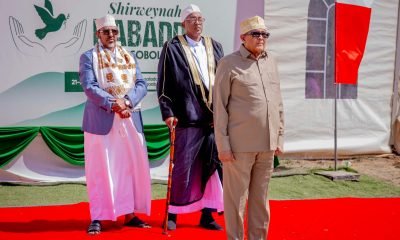
 Somaliland3 months ago
Somaliland3 months agoSomaliland Recognition: US, UK, Israel, and Gulf Bloc Poised for Historic Shift
-

 EDITORIAL1 year ago
EDITORIAL1 year agoDr. Edna Adan Champions the Evolving Partnership Between Somaliland and Ethiopia
-
Top stories2 years ago
Ireland, Norway and Spain to recognize Palestinian state
-

 Russia-Ukraine War6 months ago
Russia-Ukraine War6 months agoFibre-Optic Drones Shift Ukraine’s Drone Warfare
-

 ASSESSMENTS10 months ago
ASSESSMENTS10 months agoOperation Geel Exposes the Truth: International Community’s Reluctance to Embrace Somaliland as a Strategic Ally
-
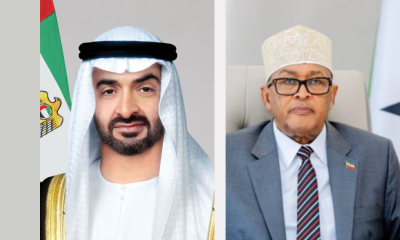
 Somaliland1 year ago
Somaliland1 year agoSomaliland and UAE Elevate Ties to Comprehensive Strategic Partnership










